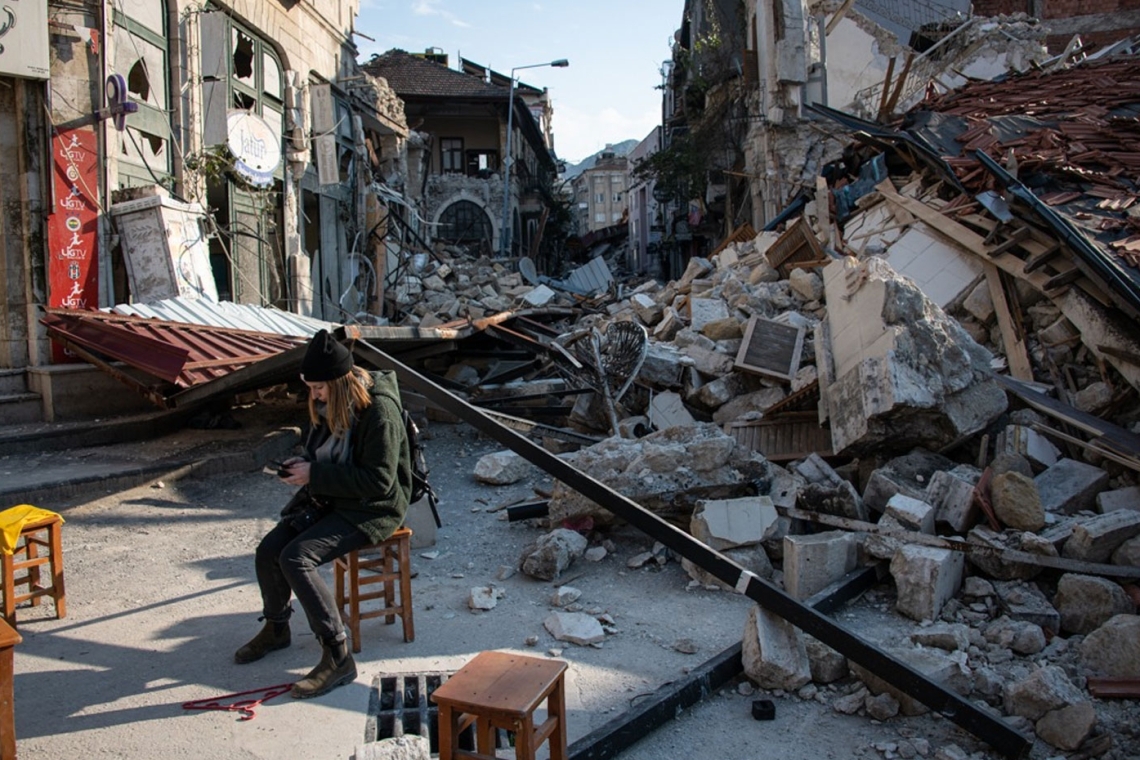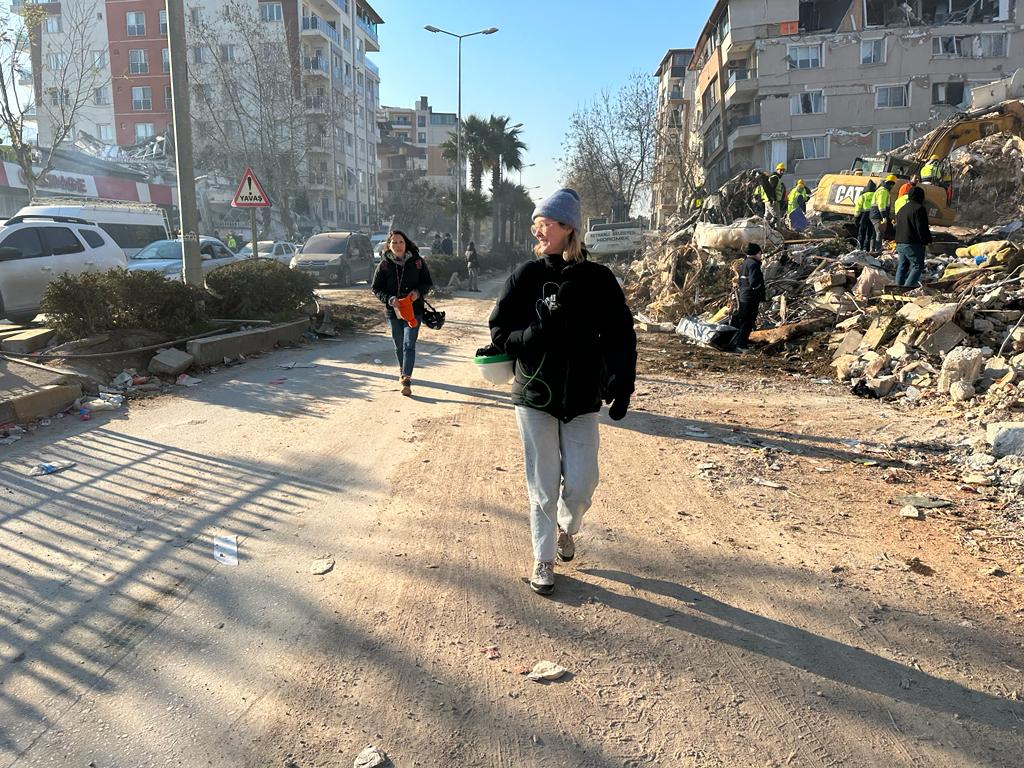BURCU ÖZKAYA GÜNAYDIN
Twenty months after Turkey’s devastating February 2023 earthquakes, journalists covering the affected regions continue to face unique difficulties, especially as economic hardships worsen. Local reporters struggle with limited resources to cover the region regularly, and press associations and political groups are being urged to offer more support.
In MLSA’s "Journalism in Earthquake Zones" series, journalists Gonca Tokyol and Ingrid Woudwijk shared their experiences, focusing on changes in the region and the persistent challenges for reporters.
Observations from the field: "Everyone feels their city was hit hardest"
Gonca Tokyol, a journalist who has been reporting from Adana and Hatay since the early days of the disaster, recently returned from Adıyaman and Malatya. She noted that residents in each city tend to view their own destruction as the most severe. "People in Adıyaman, Malatya, and Hatay all feel their cities suffered the worst damage. Hatay’s city center, for example, is visibly more devastated compared to other regions, while Malatya’s center is so destroyed it’s hard to identify where the center even is," she explained. Tokyol added that reconstruction efforts began earlier in Adıyaman than in Hatay, a difference evident in the number of completed homes handed over by AFAD and TOKİ.
Rebuilding efforts and lingering issues
While reconstruction has picked up, many problems persist. “In Hatay, while reconstruction is now underway, critical issues remain, like shortages in public transportation, electricity outages, and limited access to drinking water. Education also remains a struggle,” Tokyol said, observing the ongoing presence of cranes and construction sites throughout the area.
Covering the earthquake zone has been costly, with technical and logistical challenges exacerbating the burden. "At the beginning, bringing generators was necessary to even report from the field, but today, those technical issues have eased somewhat. There are hotels for journalists to stay in now, and basic food and water needs are more accessible,” she noted.
Reflections on journalism in crisis zones
Tokyol emphasized the importance of upholding journalistic integrity when reporting on large-scale tragedies like earthquakes. “It’s not just about being there to report but also about the values guiding that reporting. What matters is accurately reflecting what people are going through, and while it’s hard not to be affected by the stories, it’s essential to maintain professional distance.”
Tokyol also called on media organizations to increase their support, suggesting that press associations and political parties could organize regular, funded trips to the region to allow more journalists to report on the ongoing situation. “A press bus, for example, would make a huge difference in helping more journalists cover what’s happening. Bringing local reporters into the fold would also boost coverage,” she said.
Dutch journalist’s perspective: The impact of the earthquake persists
Istanbul-based Dutch journalist Ingrid Woudwijk has frequently traveled to the affected areas, visiting cities like Urfa, Maraş, Hatay, Malatya, and Adıyaman. She noted that while conditions have improved since the initial aftermath, the impact of the disaster is still very present. “Comparing cities feels unfair because the entire region has been deeply affected,” she said, underlining the widespread challenges locals face.
Accessing accurate information remains difficult. “There are different figures depending on the institution, and even finding reliable data on TOKİ’s building projects is challenging,” Woudwijk explained.
Woudwijk also acknowledged the relative improvement in infrastructure, stating, “In the early days, there was no electricity, fuel, food, or lodging. Today, life is easier: hotels, restaurants, and even bars are reopening, and the basics—breakfast, internet—are available. Things are moving forward, but the earthquake’s toll is still felt by everyone.”




